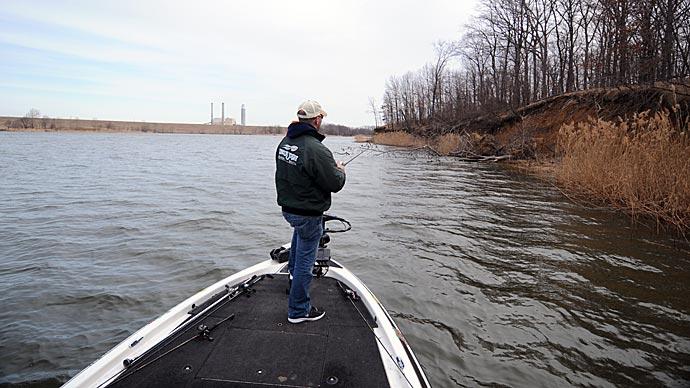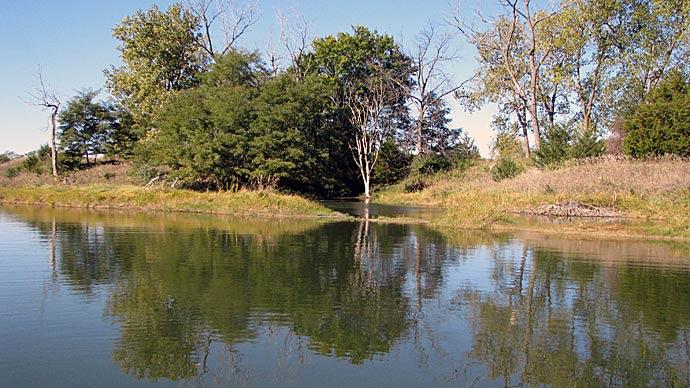There is a serious defensive battle about to begin in the U.S. -- a battle against foreign invaders. This is a fight in which bass anglers must engage because we could be accused of aiding and abetting the enemy!
The enemy, of course, is not human. It is an array of exotic aquatic nuisance species (ANS) that can completely change an ecosystem and result in billions of dollars of long-term expense to society and destroy existing fisheries. The bad guy that prompted this battle is the exotic "zebra mussel" now found throughout the major waters east of, and including, the Mississippi River. The goal of the defenders is to stop the invaders from getting west of the 100th meridian.
Aquatic plants, like the new threat, Salvinia molesta (giant salvinia), and the old problems hydrilla, Eurasian milfoil and water hyacinth, also can easily be transported to new vulnerable ecosystems on innocent bass anglers' boats and trailers.
Bass fishermen are the most mobile anglers in the world! We trailer our boats significant miles and fish a lot of different waters annually. We also fish in a lot of waters that have these dangerous exotic hitchhikers looking for a free-ride to an unexposed environment.
Bass anglers also have a lot to lose if these foreign invaders are turned loose on our favorite waters - socially, economically and recreationally.
B.A.S.S. members are the most avid anglers on earth. We must share the responsibility to try and prevent the spread of ANS species. What follows is taken directly from the US. Fish and Wildlife Service's information on their new initiative to combat ANS invaders. It's an effort that deserves B.A.S.S. members cooperation and support.
"The U.S. Fish and Wildlife Service, in conjunction with western state resource agencies and the Aquatic Nuisance Species Task Force's Western Regional Panel, recently launched a collaborative effort geared toward controlling the spread of zebra mussels and other aquatic nuisance species. The goal of this effort, known as the 100th Meridian Initiative, is to prevent or slow the spread of such species into areas west of the 100th Meridian from infested areas in the east."
"The Initiative is based upon a comprehensive prevention-exclusion program conducted by the public and private sector in the six states that straddle the 100th Meridian, which defines the western border of Oklahoma and crosses the western sections of Texas, Kansas, Nebraska, South and North Dakota and the Canadian Province of Manitoba."
"Research indicates that most of these species are introduced into the west through recreational boating and angling activity, ballast water, and aquaculture. Despite this evidence, there are still opportunities to preclude the extensive colonization that has occurred in many areas in the east."
"This Initiative includes the following components: voluntary boat/ trailer inspection and cleaning sites with a related information and education campaign in the 100th Meridian States and Manitoba. States bordering the 100th Meridian states are encouraged to support this effort by implementing effective education-outreach programs targeting boaters and anglers that may be traveling on major highways used by westward bound travelers from States with potentially infested waters."
". . . A principle component of the Initiative is the focus on voluntary inspections and cleaning of boats and trailers being towed westward through 100th Meridian states that would be supported and facilitated by comprehensive information and education campaign. This will generate data that will help to determine the extent of westward transport of aquatic nuisance species and the risk of their becoming established in the West. High risk waters throughout the West will be monitored for new infestations and a rapid response capability to eradicate or contain new colonies will be developed and put in place."
"Groups that repeatedly move boats or other equipment westward such as commercial boat transport companies and participants in professional fishing tournaments are more likely to transport zebra mussels and other ANS. Such groups will be a focus of the Initiative. These companies and individuals will be encouraged and assisted in reducing the risk associated with their activities through educational outreach and technical assistance."
"For additional information (and brochures explaining the 100th Meridian Initiative) please contact Linda Drees, USFWS, at (785) 539-3474, ext. 107."
Keep the weeds off your boat trailer and lower units.
This was originally published in B.A.S.S. Times, which goes to members of fishing clubs affiliated with the Bass Anglers Sportsmans Society in Montgomery, AL. The piece was written by the former director of fisheries in New York, and is reprinted here with permission.
Reprinted with permission from Pond Boss Magazine



